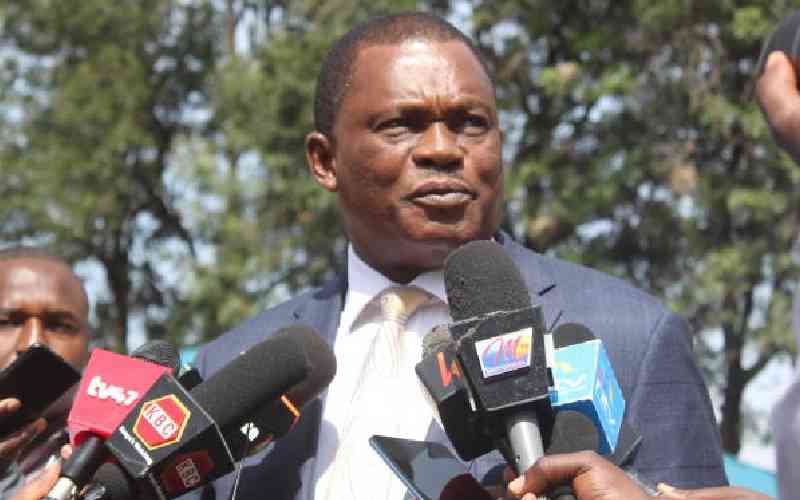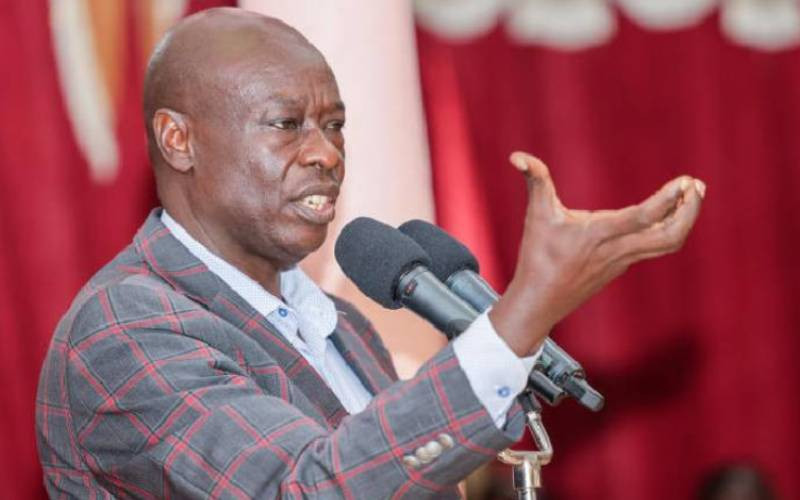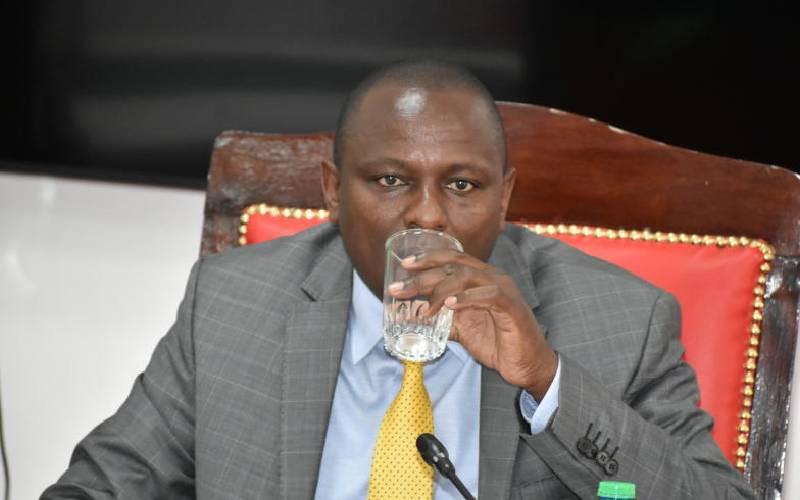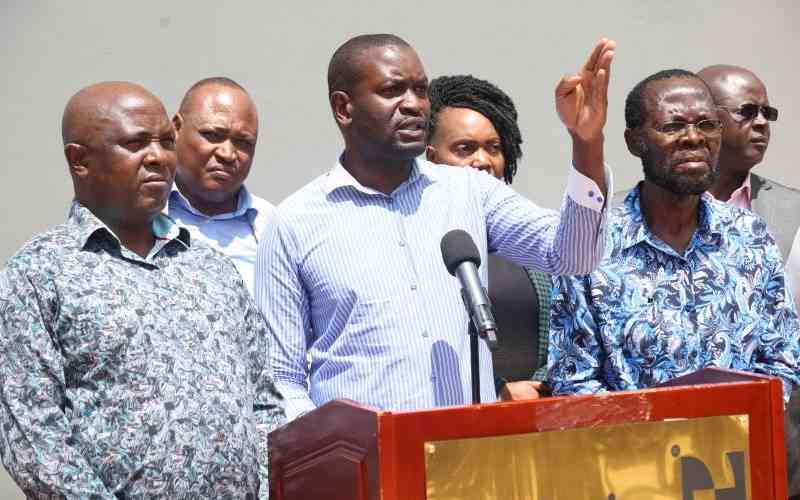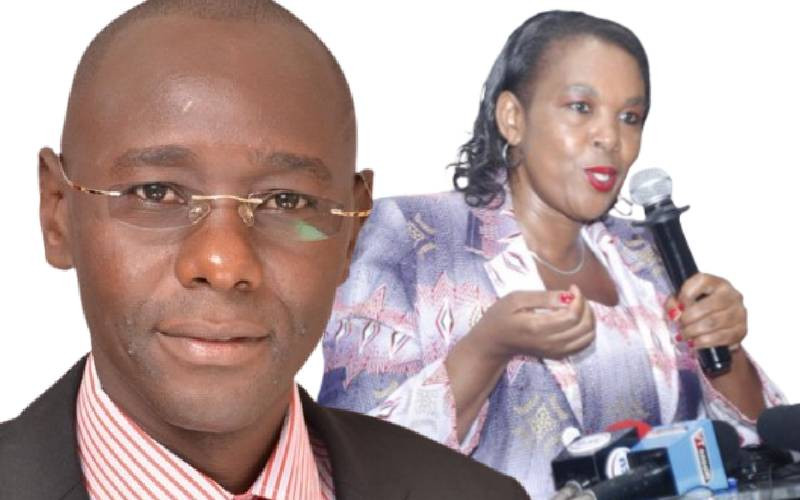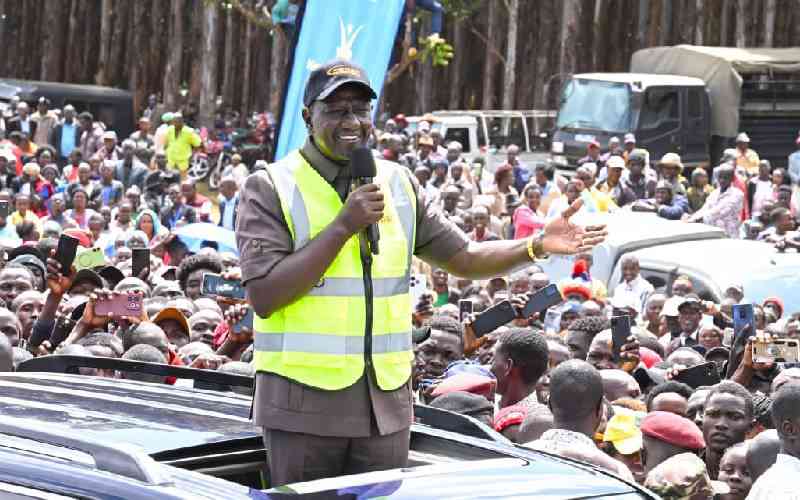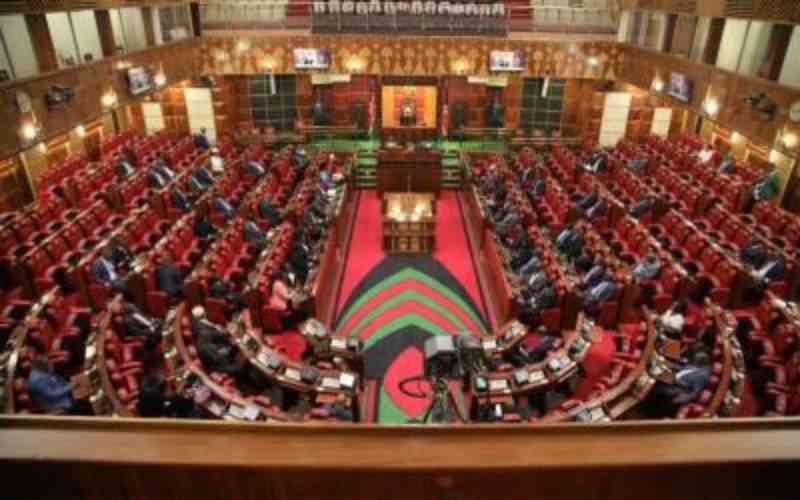
Their inclusion into President William Ruto’s Cabinet was mostly aimed to ensure the Head of State’s political survival, as he uncannily admitted when he declared he intended to share the burden of ‘Zakayo’ tag.
Besides their respective backyards where Ruto’s concessions are paying off, the four allies of ODM leader Raila Odinga are currently not the most popular persons.
It has everything to do with the general feeling among youthful protesters who believe they took advantage of their movement to earn Cabinet slots, shielding what they deem a corrupt regime from accountability.
To Generation Zs and Millennials, Ruto’s broad-based arrangement with Raila is a mission of self-preservation, a regrouping of selfish interests to defeat a legitimate push for meaningful reform.
And it seems like their first assignment is to turn the political opinion in their favour, which they can, arguably, achieve if they succeed in their jobs.
Handed four of the most critical government dockets, Cabinet Secretaries John Mbadi (National Treasury), Opiyo Wandayi (Energy and Petroleum), Wycliffe Oparanya (Cooperatives) and Hassan Joho (Mining and Blue Economy) have their work cut out for them.
Raila and his ODM are confident that the quartet will deliver for Kenyans, but they will need more than a pat on the back from their former boss.
In an OpEd in The Saturday Standard, Economist Patrick Muinde asserted that the relative respite that Ruto-Raila broad-based government would earn depends on CSs sworn in last Thursday.
Cognizant of the heavy weight upon his shoulders, Mbadi hit the ground running as soon as he was sworn into office, reporting to work as others favoured a celebration first. As youthful protesters paralysed activities in Nairobi’s central business district, he familiarised with his office, meeting top officials, including the Treasury Principal Secretary Chris Kiptoo.
Mbadi will be in sharp focus. Unpopular tax measures by his office essentially sparked the youth-led protests that have gone on for more than a month. When he appeared before the National Assembly Committee on Appointments for Vetting, he opposed increase of taxes.
Economists have described his role as “unenviable,” given the fact that the accountant inherits a debt-ridden economy desperate for resources. The rejection of the Finance Bill, 2024, and the High Court’s quashing of Finance Act 2023 version, complicates matters for the former ODM chairperson.
But the former lawmaker, banking on his budget-making experience to succeed, plans to reform the Kenya Revenue Authority to mobilise more resources.
“The solution to tax mobilisation should be targeting the tax collector… KRA is like a cow that we have been milking without feeding it,” said Mbadi.
Similarly, he pledged to ensure debt accountability and link borrowing to projects, an issue Auditor General Nancy Gathungu and Controller of Budget Nancy Gathungu have highlighted previously.
Muinde urged the new Treasury boss to avoid the pitfalls of his predecessor, Prof Njuguna Ndung’u, who he said had been disconnected from the economic realities of ordinary Kenyans by constantly raising taxes.
Despite Prof Ndung’u’s aggressive tax increases, the KRA has consistently fallen short of set revenue targets.
Opposition to raising taxes
Mbadi’s opposition to raising taxes may put him on a collision course with his new boss, Ruto, who has dreams of outdoing his predecessors on revenue collection. Similarly, he shows an inability to say no to policies by the International Monetary Fund.
Muinde observed that the economic indicators looked grim, setting up Mbadi for his toughest job yet.
“On the global stage, financial markets were in turmoil this week, with stock exchanges worldwide losing billions in wealth… The Nairobi Stock Exchange has not been spared this upheaval,” he said.
He also highlighted warnings by the Central Bank of Kenya that described 2023 as a year of continued turbulence, among other indicators.
While urging the CS against increasing taxes, Muinde proposed measures to put more money in the people’s pockets, which include the withdrawal of unpopular levies, such as the housing tax and the proposed health insurance scheme that will claim 2.75 per cent of workers’ dues.
“The CS should also consider implementing targeted tax reliefs for businesses to revive production and inspire confidence in resuming employment in the formal economy,” he said also proposing a restructuring of public expenditure to cut wastage.
A day after he was sworn in, Wandayi would also face the expectation that awaits him. He accompanied Ruto as they launched the last mile electricity connectivity programme in Kangaru, Murang’a.
As he is well aware, the former Ugunja MP, has the job of connecting millions more to electricity, making him a person of interest for that and other roles.
His Energy docket does not enjoy the best reputation. Fuel prices have risen to record high amid claims of impropriety involving oil importation.
The effect has been increased business costs across multiple sectors. Matatu and bodaboda operators have had to increase fares, which has done little to raise their profits. Factories have had to downsize, with others relocating owing to increased operating costs.
Ordinary Kenyans, many of whom depend on paraffin for their cooking needs, have struggled. Cooking gas users, too. Frequent power outages and high electricity costs have made Wandayi’s predecessor, Davis Chirchir, the subject of criticism and multiple parliamentary invites.
The former National Assembly Minority Leader faces the task of ridding his ministry of cartels.
“My stand on corruption remains unchanged. I may not be an angel but throughout my life, I have fought corruption,” declared Wandayi, who formerly chaired the Public Accounts Committee, which investigated reports of corruption.
Electricity Consumers Society of Kenya Executive Director Isaac Ndereva, believes that to succeed, Wandayi must ensure transparency in the ministry and promote consumer education and advocacy.
Eng Ndereva who has been vocal against electricity over billing, highlights “cartels that siphon the Independent Power Producers fuel cost charge”, as Wandayi’s greatest challenge.
“The computation of the cost doesn’t follow the gazetted formula and is currently taking Sh500 million per month, which is overbilling for theft,” he said.
During the approval hearing, Wandayi said he would explore cheaper renewable energy sources to replace expensive thermal producers.
Oparanya assumes the leadership of the Cooperatives Ministry, which handles, among others, Ruto’s flagship Hustler Fund project, whose implementation, he said, was hastened.
His ministry also oversees the hustlers-owned micro and small enterprises, many of which have faulted the president’s harsh tax policies for stifling growth. Oparanya will be banking on his experience steering a county government and as Panning minister in the late former President Mwai Kibaki’s government, to drive the Cooperate docket.
Of the four, Joho, perhaps, got the least followed ministry. Kenya is hardly considered a mining country, with the blue economy largely restricted to the coastal and Lake Victoria regions.
He promised to turn that around and make the sector viable.
The former Mombasa governor’s profile, on and off social media, will, undoubtedly, have many focused on his performance.
 The Standard Group Plc is a multi-media organization with investments in media platforms spanning newspaper print
operations, television, radio broadcasting, digital and online services. The Standard Group is recognized as a
leading multi-media house in Kenya with a key influence in matters of national and international interest.
The Standard Group Plc is a multi-media organization with investments in media platforms spanning newspaper print
operations, television, radio broadcasting, digital and online services. The Standard Group is recognized as a
leading multi-media house in Kenya with a key influence in matters of national and international interest.

